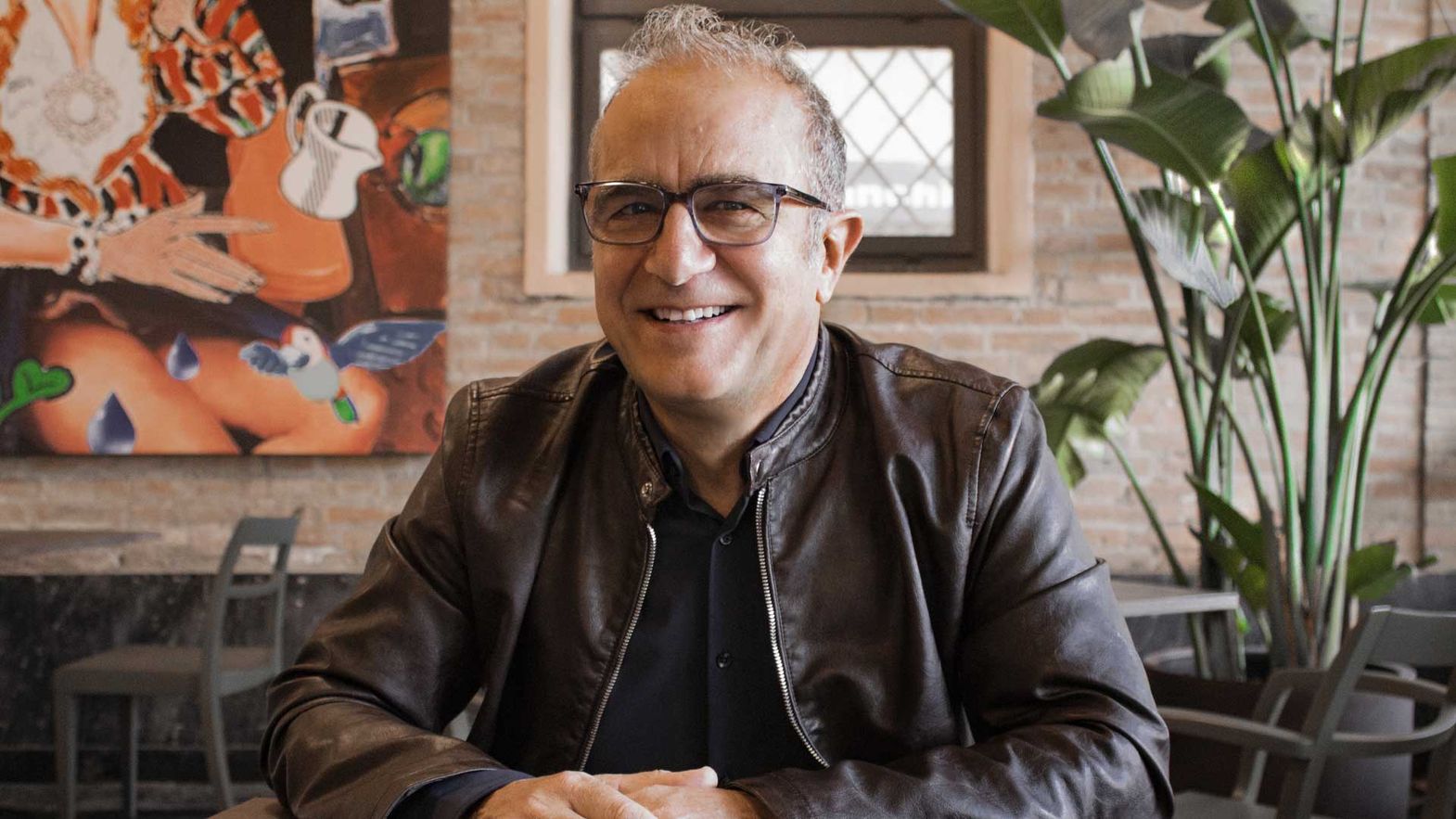 © Giovanni Mecati, acmesign
© Giovanni Mecati, acmesign
And then come the helicopters. Between one unexpected Oscar and then another, Michael Mann and Oliver Stone, Gus Van Sant and Bertolucci. Then, the helicopters. They are the ones that literally make the perfect synthesis of what it means to be an editor. A great editor. It happens when you ask Pietro Scalia, Visione Award Ticinomoda of Locarno76, what the difference is between editing Good Will Hunting and Black Hawk Down.
“No difference. They are two very different subjects, but for my work very similar. In Good Will Hunting, the dialogues, their rhythm, and the actors' dialects are fundamental. The challenge in editing is to create something real, that takes you there, between them and their speeches. In Black Hawk Down, on the other hand, the key is in the action, but the mission is the same: to take the viewer there, in the middle of the action. And 'action' does not mean showing how they shoot but being afraid of being hit by a bullet. To be there, literally, and to live that experience”.
Mission accomplished, in both cases
Editing Black Hawk Down was when I sketched out the sequence of the helicopters flying over the coast and entering the city. Nothing definitive, but I had to show Scott something. I took the footage, put my choices together. Then I took the helicopters out. Not the images, their sound effects. I put in something from Besson's The Fifth Element, some alien sounds. The end. Shortly afterwards Ridley told me that the military people we had shot with would like to see something. We showed them that scene, and they were speechless. "It's unbelievable, we got goosebumps, it felt like we were there, again". The sound was missing, the din they are immersed in during an operation like that, but it was realistic. Seeing it like that, they recognized the moment when everything was silent in their minds, before the war. Which was exactly the question Black Hawk Down was asking: what does it mean to be a soldier? That'.
What is the secret?
The balance. Definitely the gut instinct, but also the sensitivity of the heart and the precision of the ear. Rhythm and inspiration. Then there is the whole technical part, which is fundamental; the infinite amount of material to manage, special effects, sound, color. And knowing how to delegate, therefore knowing how to communicate. I was extremely lucky to find the perfect balance.
How do you balance Bertolucci and Spiderman?
One is inspired by the material at hand and by the sensibility of the person who shot it, with the sense of rhythm and drama as the basis. It might sound strange, but I like poetic cinema. And in any case, we are at the service of the story. We must take it, understand it, and put cinema into it.
How hard is it to win an Oscar at the age of 31, on your second film?
It's an incredible initial launch. At the time I loved Oliver Stone's cinema, Salvador, I liked that and wanted to work with him. Then Claire Simpson (Oscar-winning editor for Platoon, ed.) told me "OK, be an assistant". In less than five years I was chief editor of JFK. I was lucky enough to be ready. Then came the dream of working with a master like Bertolucci, who offered me his next film, and Gus Van Sant, who called me because he adored Bertolucci.
Then Ridley Scott, with whom a special fellowship was born. It's not unusual in cinema: Thelma Schoenmaker and Martin Scorsese, Verna Fields and Steven Spielberg.
It happens; we meet, we understand each other and above all we recognize each other. We made three films in two years, crazy. An unsustainable rhythm. Everything is based on a relationship of total trust, of generosity, of feeling in safe hands. To the point of leaving creative freedom to the other. If the person is the right one, you can let them be. The real difference, for those who do my job, is the filmmaker you work with. Today there is no more room between tentpoles and small productions; The Godfather and The Huntsman no longer exist, the work is more corporate and the final cut is decided by many people, not just the director or the editor.
Does Pietro Scalia have a film that shakes him every time he sees it?
Raging Bull is a masterpiece, The Godfather one of my favourites, but the real dream would be to work on The Shining, with Stanley Kubrick. And then Fellini, Antonioni, Fassbinder, Wenders. All authors who have contributed to building my cinema.
But how did it all start?
I don't know, I was working well with my hands. I wasn't thinking of America, I was thinking of going back to Switzerland and working in Europe. Then editing found me. And I found my craft.